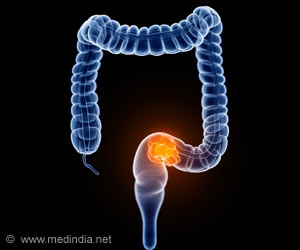World breastfeeding week is a global vibrant movement celebrated between 1st - 7th August for action to promote, protect and support breastfeeding.
- World breastfeeding week is celebrated every year between August 1st - 7th to encourage breastfeeding and improve the health of babies.
- WABA (World Alliance for Breastfeeding Action) initiated the breastfeeding week in 1992 and is now observed by WHO, UNICEF and other organizing partners.
- The theme for this year is Sustainable Development together - which calls for partnerships to achieve the sustainable development goals by 2030.
“World breastfeeding week is a global vibrant movement for action to promote, protect and support breastfeeding by anyone, anywhere and anytime. It expands and connects the power of one with the power of many. Only by working together, we can make the change we need”, said Dr. Anwal Fazar, Chairperson, Emeritus, WABA & Director, right Livelihood College.
How Did it Begin?
In the year 1992, the WABA started the World breastfeeding week with the motive to encourage breastfeeding in mothers and to extend support. WABA was established on 14th February, 1992 to promote breastfeeding practices as it was found to be diminishing in the developing world.
On the other hand, the rate of diseases which affect infants were on the rise. WABA initiated to support the global promotion of the campaign of breastfeeding.
Theme for 2017
Sustainable Development Goals is a set of 17 "Global Goals" with 169 targets between them, was framed by the United Nations with its 193 member states. World Breastfeeding Week focuses on the Sustainable Development Goals (SDGs).
Sustainable Development Goals (SDGs) and Breastfeeding
1. No Poverty- Breastfeeding is a natural way of feeding babies and is economical than artificial feeds. It reduces the risk of poverty.
2. Zero Hunger - Breastfeeding ensures that the child is exclusively fed for 6 months and along with other foods, up to two years, zeroing the impact of hunger.
3. Good health and well-being - Breastfeeding improves the health of the infant and the mother. The chances of survival is six times more in a breastfed infant.
4. Quality education - Breastfeeding contributes to mental and cognitive development and thus promote learning.
5. Gender equality - Every child, be it boy or girl have the equal right to be breastfed.
6. Clean water and sanitation - The child receives all the water a baby needs through breastfeeding.
7. Affordable and clean energy - Breastfeeding reduces the need for water, firewood and fossil fuels compared to artificial feeds.
8. Decent work and economic growth - Breastfeeding women who are supported by their employers should cater to the needs of breastfeeding women, especially those in precarious situations.
9. Industry, innovation and infrastructure - Most women work these days. Lactation rooms, day care centers near the workplace and breastfeeding breaks can make a big difference.
10. Reduced inequalities - To reduce inequalities, the practice must be protected, promoted and supported by all.
11. Sustainable cities and communities - Breastfeeding mothers and their babies need to feel safe and welcome in all public spaces. During disaster and humanitarian crises strike, pregnant and lactating women need particular support.
12. Responsible consumption and production - Breastfeeding provides a healthy, sustainable and natural source of nutrition for the child.
13. Climate action - Weather-related disasters due to global warming does not have an impact on the infant when the child is breastfed.
14. Life below water - Compared to formula feeding production and distribution breastfeeding is an insignificant contributor to water pollution.
15. Life on land - Breastfeeding does not put pressure on natural resources and unlike artificial feeds which contributes to carbon emissions and climate change.
16. Peace and justice strong institutions - National legislation and policies should protect and support breastfeeding mothers and babies.
17. Partnership for the goals - The Global Strategy for Infant and Young Child Feeding (GSIYCF) requires multi-sectorial collaboration. It can be done by building upon various partnerships for support of development through breastfeeding programs and initiatives.
In order to achieve these goals, multi-level partnerships at each level is essential.
Dr. Amal Omer-Salim, WABA’s Co-executive Director, said, “Let us work together to identify what works and overcome common challenges. By linking World Breastfeeding week to SDG’s we can all work on ambitious goals that have a practical effect at all levels. We can only achieve this through sustainable partnerships. Let us come together to campaign for a generation.”
By reaching out and extending support, the campaign can bring the gradual and permanent changes in the social living.
Mothers need timely support and health care education soon after or even during pregnancy. This includes education on breastfeeding also. Initiating breastfeeding is the prime decision of the mother and requires support from the family, friends, community leaders, trained health workers and doctors.
Why is Breastfeeding Important?
- Breastfeeding marks a good beginning for the health of the child and has a life time impact.
- Breastfeeding is good for the mother, as well as the baby. It reduces the risk of breast cancer which adds $ 302 billion to the global economy annually.
- Breastfeeding can save the lives of 800,000 children from acute and chronic diseases every year.
- Breastfeeding reduces the chances of diarrhea, pneumonia and asthma in children which succumbs the lives of 1.4 million children per year.
- Breastfeeding increases the chances of survival of the infants by six times. An exclusively breastfed child is 14 times less likely to die in its first six months than a non-breastfed child.
- World Breastfeeding Week 2017 - (http://www.thp.org/news/world-breastfeeding-week-2017-sustaining-breastfeeding-together/)
- World Breastfeeding - (http://worldbreastfeedingweek.org/)












